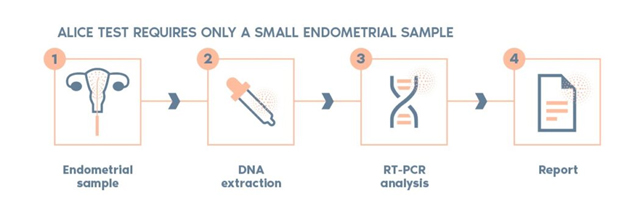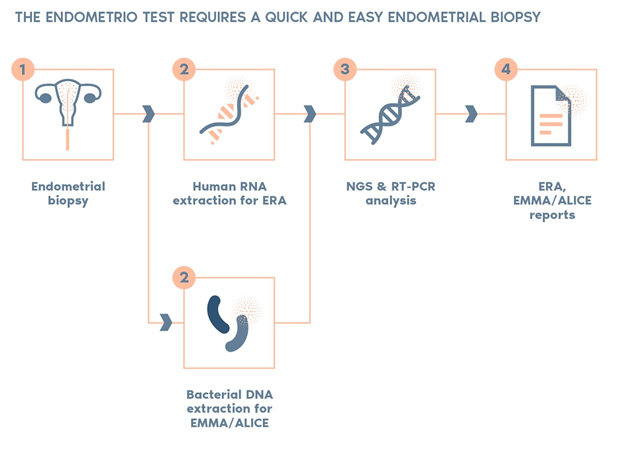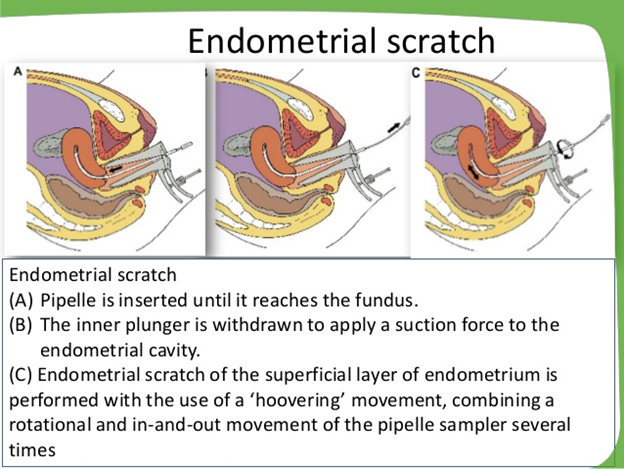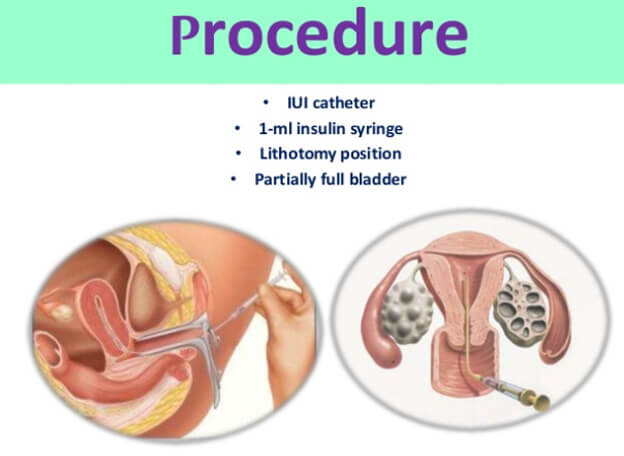Multiple IVF Failure
Known as recurrent implantation failure.
Unable to have pregnancy in spite of multiple attempts
Advance treatments are available-
1) Personalized & customized embryo transfer
2) Blastocyst culture
3) Expanded hatching blastocyst culture
4) Laser hatching
5) Lymphocyte immune therapy
6) Correction of luteal phase defect
7) ERA-Endometrial receptivity analysis
What is ERA Test?
ERA® is the best diagnostic tool to find the optimal time for embryo transfer and is suitable for all patients starting In Vitro Fertilization.
The interior of the uterus is lined with a tissue called the “endometrium”. This is the “nest” which your body prepares, each month, for the arrival of an embryo. The endometrium is the “home” where the embryo implants and resides during gestation. The embryo is able to implant in a specific receptive period of time during a woman’s cycle. This is called window of implantation. By knowing your personal window of implantation, you can optimize your chances of pregnancy through a personalized embryo transfer
How Does It works?
Express to your doctor your interest regarding the ERA test
Your physician will discuss with you the best option according to your case
Your doctor will request the ERA test to Igenomix

8) ALICE –Analysis of infectious Chronic endrometriltis
What is ALICE Test?
ALICE (Analysis of Infectious Chronic Endometritis) detects the bacteria causing chronic endometritis.
Why use ALICE?
ALICE provides accurate information, leading to a successful treatment of chronic endometritis, improving the patient’s reproductive outcome. If harmful bacteria are detected, your doctor will have relevant information for a better treatment of this condition.
Is ALICE for you?
This test is recommended if:
ALICE is an alternative for women with infertility or who have suffered recurrent implantation failure or repeat pregnancy loss, to promote reproductive success.
You are undergoing assisted reproduction treatment
How Does It Works

9) EMMA – Endometrial microbiome metagenomic analysis
What is EMMA test?
EMMA evaluates your endometrial flora to quantify all bacteria present in the endometrium including the good ones.
EMMA also includes the ALICE test to identify the pathogenic bacteria most commonly associated with chronic endometritis.
Why use EMMA?
EMMA will determine whether the uterine microbial environment is or is not optimal for embryo implantation.
EMMA determines the abundance of healthy bacteria (Lactobacillus) in your endometrium.
This test also reports the presence and quantity of the most common harmful bacteria of the reproductive tract. This includes the ALICE part of the test, indicating the possible presence of bacterial pathogens that can cause chronic endometritis or other infections.
Microbiology counseling is available for doctors.
Is EMMA for you?
This test is recommended if:
If you want to become a mother, you can benefit from the greater knowledge about your endometrium that the EMMA test offers.
This test is especially useful if you have suffered recurrent implantation failures or repeated miscarriages during your IVF cycles.
How Does It Works

10) Endome Trio – complete Endometrial analysis which includes all
What is the endometrium?
Endometrium is a tissue lining the interior of the uterus where the embryo implants and resides during pregnancy.
Each month the endometrium prepares for the arrival of an embryo. When this does not occur, menstruation begins.
A healthy endometrium is rich in healthy bacteria: the endometrial flora
Why use EndomeTRIO?
72.5%*pregnancy rate using ERA in the first IVF cycle in any patient.
With EndomeTRIO analysis you will have a complete view of your endometrial health.
When performing the embryo transfer in a personalized way, the chances of getting pregnant are increased after the assisted reproduction treatment.EMMA will determine whether the uterine microbial environment is optimal or not for embryo implantation.
Is Endome-TRIO for you?
This test is recommended if:
You have suffered a pregnancy loss, especially recurrent implantation failure.
You are undergoing assisted reproduction treatment
How Does It works

11) Endo scratching
An endometrial scratch is a procedure proposed to improve endometrial receptivity and increase the probability of pregnancy in women undergoing IVF.

12) PRP Instillation
Platelets contain a significant amount of growth factors that have positive effects on local tissue repair and endometrial receptivity.

13) GCSF Instillation
Granulocyte-colony stimulating factor (G-CSF) seems to play an important role in the process of embryo implantation and continuation of pregnancy. It has been used during in vitro fertilisation (IVF) treatment for subfertile women with chronically thin endometrium and those with previous multiple IVF failures

